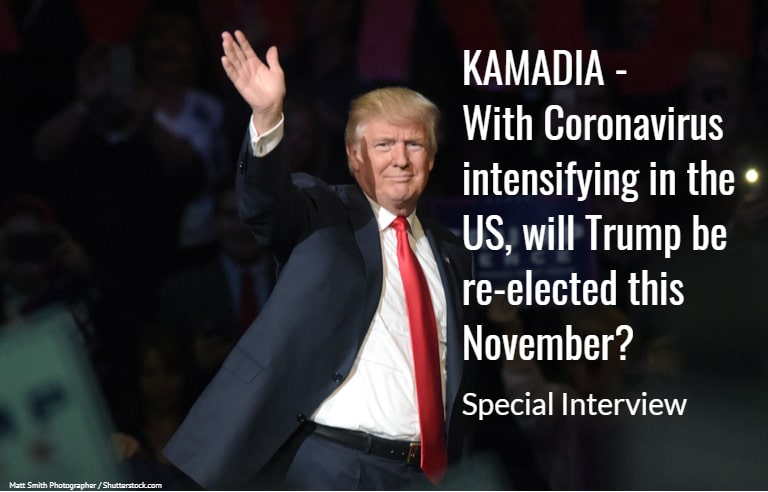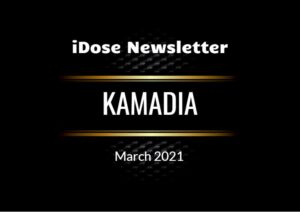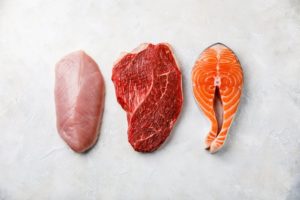Interviewer: Aly Kamadia is the Editor-In-Chief of iDose.
Interviewee: Dr. Matthew Lebo is Professor of Political Science at the University of Western, Ontario. He also currently chairs the department.
Note that the following interview was published on April 22nd, 2020.
President Donald Trump occupies the most powerful political office on our planet. To all of his American critics, there is only one sure way to kick him out of office: the November 2020 election.
Yet with the official confirmed cases of Covid-19 approaching the million mark in the United States (the current number reported by Johns Hopkins is roughly just above 750 000), media attention has shifted to almost exclusively covering the global pandemic.
Many of the consequences of Covid-19 remain riddled in uncertainty. How it will specifically impact the election and whether Trump will win again remains to be seen. Nevertheless, iDose reached out to Leading Political Scientist Dr. Matthew Lebo, Professor and Chair of the department at the University of Western (Ontario, Canada) to get some insight.
Aly Kamadia (Kamadia): Thank you so much for the opportunity to interview you.
Matthew Lebo (ML): You’re welcome.
Kamadia: With all eyes focused on the Coronavirus (Covid-19), a lot of people have forgotten that there’s a presidential election in the United States (US) this upcoming November. When it comes to US electoral politics, is there any historical point of reference (or references) that come to mind given the current circumstances?
ML: There has certainly never been anything like this since at least the Second World War when a presidential election was held in 1944. But the 2020 election holds more challenges than even that one – this one will be very close. Also, there are already disagreements over the methods of how to conduct the election and those disagreements will fall along partisan lines. It is very possible that the election results will be disputed as well.
Kamadia: President Trump’s job approval rating has slipped by some measures recently, though currently, roughly 46% of Americans approve of the job he’s doing. I personally think that his handling of the global pandemic has been a disaster. Why do you think so many Americans approve of the job he’s doing, given the immense hardships throughout significant areas of the country?
ML: The United States is deeply split along partisan lines and has been for a long time. Donald Trump’s presidency has extended and deepened the divide. It is very hard for people to not see things through their partisan lenses – even a global pandemic cannot be viewed objectively and people who consider themselves Republicans and therefore like Trump will not give up their approval of him. Instead, they will look for justification to blame others – China, Democratic Governors, the Obama Administration – and tell themselves that Trump is doing a good job.
You might think the fact that the US now has 4 times as many cases of Covid-19 as the next worst-hit country is plain objective evidence that Trump has done a bad job. But for a person whose political identity is wrapped up in being a Republican and supporting the Republican president, to accept those facts as Trump’s fault is extremely difficult.

Kamadia: The entire US economy has been put it in a freezer, and the various measures that the Federal Reserve and Treasury have taken are more drastic than the Great Recession – roughly a little over a decade ago. There’s a growing consensus that we haven’t experienced this sort of economic catastrophe since the Great Depression.
Can you give some general comments about how past recessions have impacted presidential voting behavior? And do you mind elaborating on the question of, to what extent, if any, this might give us insight into November’s election?
ML: The economy is generally a very important factor in how people evaluate the president and in their vote choice in presidential elections. In 1932, Herbert Hoover was punished for both being president when the depression began and for his poor reaction to it. In 2008, Republicans suffered given that George W. Bush was leading the country during an economic collapse. But the unprecedented collapse now may not be as powerful in the November election.
It certainly matters to the extent that if the economy was doing well, President Trump would be in a better position. But with the Covid-19 situation, it will be a matter of who gets blamed. Trump will claim that this is the fault of a worldwide pandemic and, probably, 44-48% of people will agree with that enough to vote for him.
Kamadia: If the Covid-19 situation persists, and it certainly doesn’t look like it’ll be completely gone by summer end, what do you think Party conventions will look like? What do you think campaigning will look like? Might social media become even more powerful given the current moment?
ML: Yes, it looks like it will become an online election campaign. There will be record amounts spent on TV and internet advertising. The conventions may not happen in person or only in very limited ways. Among other things, each party needs to worry about the health of their candidate.
Kamadia: Joe Biden is the presumptive Democratic nominee. If you were advising his campaign, is there any general advice you’d like to share with us? As an example, do you see any strategic VP picks?
ML: First, work hard to direct attention and money to key senate races. Winning the presidency but having the Republicans keep the Senate will make his presidency like Obama’s last two years – an impossible stalemate. Second, probably 44 states are set on who will win. The 6 states that will decide the election are Michigan, Wisconsin, Pennsylvania, Florida, North Carolina, and Arizona. Biden shouldn’t get sidetracked into aiming for an overwhelming victory by winning 350 electoral votes. That is, don’t spend time or money in places like Texas. Choose the strategy that maximizes the chances of getting to 270 electoral votes. Third, Kamala Harris makes the most sense as a running mate. Don’t overthink it and don’t take the votes of non-whites for granted.
Kamadia: Do you think Republicans are going to block mail ballots in certain states even if the global pandemic is hurting Americans? After all, we’ve seen a preview of that in Wisconsin.
ML: Yes, they will. Republicans do better when voting is more difficult. And state Republican parties have shown in many ways that they will support methods of voting and voting rules that they think give them the advantage.
Kamadia: If Covid-19 is a significant factor come November, is there any sort of emergency Presidential power that Trump might be able to pursue in order to delay and/or defer the election?
ML: It is possible but I don’t expect that to happen. It is more likely that we’ll see the emergency used to justify changes that will benefit him and Republicans. For example, limiting the number of polling stations in cities. That might sound like it is in the interest of public health, but it will also reduce urban turnout and help him. That’s part of what just happened in Wisconsin.
Kamadia: Finally, if the election is held and Trump loses, do you think there will be a smooth transition to power for the next president?
ML: That’s a huge worry. I expect the election will be very close and it will come down to the electoral votes of a couple of key states. Which party holds the governorship and legislatures of those states might determine the election. And the courts might be involved as well, all the way up to the Supreme Court. Picture the 2000 election in Florida but going on in Michigan, Wisconsin, and Arizona simultaneously.
Interviewee: Dr. Matthew Lebo is Professor of Political Science at the University of Western, Ontario. He also currently chairs the department.
Interviewer: Aly Kamadia is the Editor-In-Chief of iDose.
© All Rights Reserved
Note: The views expressed in this interview belong to the participant’s, and are not the position of Intellectual Dose, or iDose (its online publication). All Rights Reserved unless stated otherwise.



